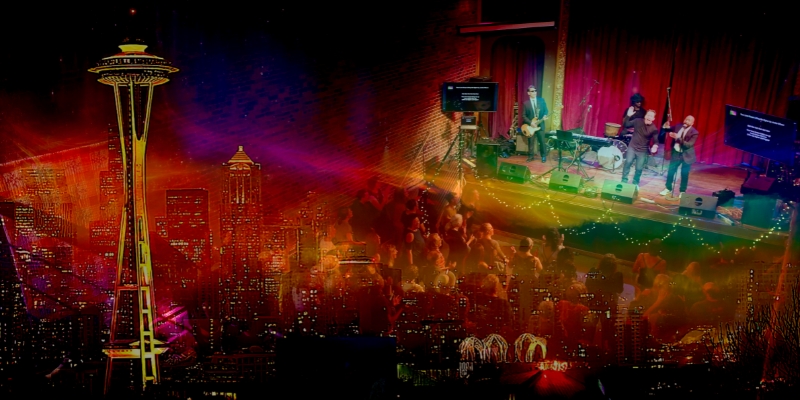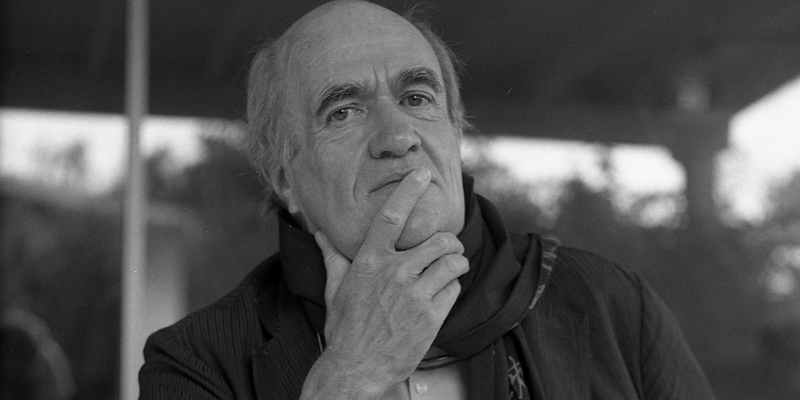Emily Slider, a local world music aficionado, was in attendance at our most recent Haram Global Rhythms Concert. She was kind enough to send along this review. She’s reviewed Town Hall concerts in the past on the Town Crier and for KEXP.

Photo by Roy Kuraisa
On Sunday, March 1, The Great Hall was a melting pot of Arabic sound. Gordon Grdina was joined by an ensemble of ten musicians, each accomplished in his own right. Unlike previous concerts in the Global Rhythm series, which have included a local and a global performer playing separate and distinct sets, this concert was a collaboration with Gordon Grdina’s ensemble, Haram, featuring Marc Ribot on guitar.
The evening opened with a guitar solo by Ribot, which lured the audience into the captivating sound. On the cue of Grdina, Haram broke into what sounded like a celebratory Klezmer wedding song. The melody tiptoed down descending intervals, dancing its way around the hall. The woodwinds rose in dynamics as every instrument played its own melody or drone, creating a very atonal feel in the midst of this traditional song. To wrap up this first piece, the ensemble quickened its tempo until each instrument was racing the others to the finale of the song. Another song began with Grdina’s ear pressed to the body of his lute as though he were coaxing the precious sound out of its body and sharing a sacred gift with the audience. His fingers flew over the body of the lute, demonstrating his mastery of the instrument.
Each voice in the ensemble had its time to shine on stage, which made for some remarkable solos. The violin, played by Jesse Zubot, opened a piece by dragging the bow lightly across its highest string, creating an eerie atmosphere. He then crept his way up the strings ferociously, creating a string sound reminiscent of Kryzsztof Penderecki’s Polymorphia. During a clarinet solo, Francois Houle, popped his clarinet in half, covering the bottom of the shortened woodwind with his hand. It was as if each player on stage were challenging himself to find every way to evoke the most sound from his instrument. When the group incorporated a call-and-response vocal into the sound, it sounded less like a religious or traditional influence and more like a ska vocal sound. After a traditional Sudanese song, the feedback from an amp was augmented and became a voice onstage. Haram heightened the fuzzy noise until Grdina cut it off and the room fell into silence again.
Haram wove free-form jazz into traditional melodies with ease for the entire evening of music. The members onstage represented ensembles that ranged from anarchist punk to concert hall groomed jazz, and to see so many individual players meld into one sound was striking. Marc Ribot played exquisite solos, yet blended beautifully with the sound of Gordon Grdina and his Haram. The night provided a fascinating, unforgettable contrast between traditional and experimental sound.


